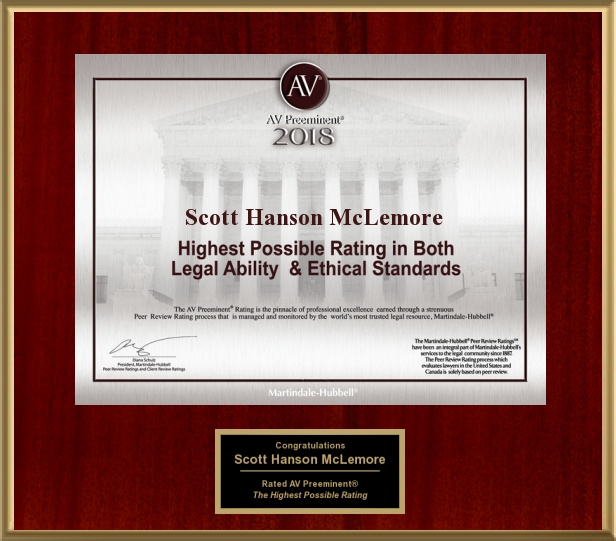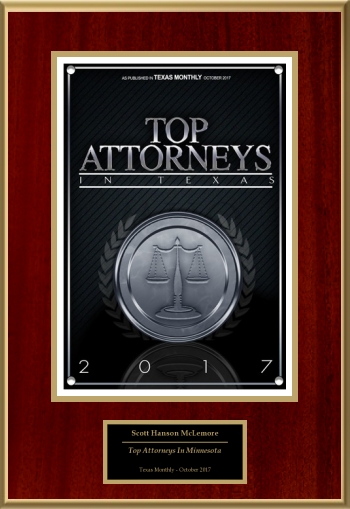- Super User
- mras-law
- Dallas Courts
- How Stuff Works
- Texas Secretary of State
- U.S. Department of Health and Human Services
- Social Security Administration
- Texas Association of Counties
- State Bar of Texas
- Texas Department of Insurance
- State of Texas
- U.S. Government Printing Office
- U.S. Department of Transportation Federal
- Highway Administration
- Municode
- Federal Motor Carrier
- Safety Administration
- Dallas County
- Internal Revenue Service
- U.S. Department of Labor
- Occupational Safety and Health Administration
- J.J. Keller and Associates, Inc.
- U.S. Department of Transportation
- Super User
- mras-law
FAQs
McLemore, Reddell & Story, P.L.L.C. offers the following answers to questions our criminal defense attorneys frequently encounter in the provision of strong, effective representation of individuals charged with DWI, drug crimes, white collar crimes, and other serious misdemeanor and felony offenses in the greater Houston area and in state and federal courts throughout Texas. If you have other questions, or if you have been arrested and charged with a crime, This email address is being protected from spambots. You need JavaScript enabled to view it. right away for a free consultation and immediate assistance.
What is an arraignment?
Texas law requires an arraignment in all felony cases as well as misdemeanor cases where you face imprisonment as a possible punishment. At an arraignment, you will be brought before the judge, who will inform you of the charge or charges against you and ask you to enter a plea. Most often a Not Guilty plea is entered at this initial stage, even if you later decide to plead guilty pursuant to a negotiated plea bargain. Bail or other conditions for your pre-trial release are also set at the arraignment.
How quickly can I get bailed out after bail has been set?
You can get out very quickly by posting bail or by posting a bond from a bail bondsman. Jail is an unpleasant place, and you may have very good reasons to get out as soon as you can, such as to be with your family, to keep from missing work, and to be back in the comfort of your own home. But it is important that your This email address is being protected from spambots. You need JavaScript enabled to view it. and not to someone who can bail you out of jail. We may be able to have you released without bail, or to have the bail amount lowered. If you do end up using a bail bond, many companies will charge you a lesser amount when they know you are represented by a lawyer and are therefore more likely to show up for your court dates.
What is a docket call?
A docket call brings the prosecution and defense together to keep the judge informed and updated about the status of the case, such as whether it is time to set a trial date or hear a plea that has been negotiated. As with all court appearances, you will want to appear presentable and respectful before the court.
Can I get probation?
Our goal in every case we handle is to get it dismissed. If the case is not dismissed, we work to get the best plea bargain possible for our clients. A sentence of probation or community supervision is available in some cases, although not in all situations. If you complete the period of probation, the charges against you can be dismissed in certain situations. This means that following probation you can in some cases complete employment applications and other documents and indicate you have not been convicted of a crime. If you fail to comply with the terms of the probation, however, you can be sentenced to a prison term, since you have already pled guilty, and did not complete the community supervision.
You may be eligible to have your probation period shortened or ended after you have successfully completed a substantial portion of your community supervision . Probation is often an excellent result for persons facing conviction of a serious offense. Deferred adjudication and pretrial diversion are other types of probation. Your attorney can explain the different options to you.
What happens if I refuse to take a breath test?
Your driver’s license will be suspended for six months (180 days) if it is your first offense, or for two years if you refused a test in a previous arrest within the last ten years. These suspension periods are typically greater than you would receive if you took a test and failed it. Also, your refusal to take a test can be used as evidence against you at trial. Of course, if you take a test and fail it, evidence of the test results may also be used against you.
Is there any way to keep my driver’s license?
If you fail a test or refuse to take a test or are arrested for DWI, your driver’s license will most likely be seized by the arresting officer. However, the officer will issue you a temporary driving certificate that is good for 40 days. You should also receive a notice that your license will be suspended 40 days after receiving the notice. This notice may be given to you at the time of your arrest or mailed to you a short time later.
You have 15 days from receipt of this notice to request an Administrative License Revocation (ALR) Hearing. At this hearing, the state may be required to prove that the officer had probable cause to stop you and that you either failed or refused a breath test. If you prevail at this hearing, not only may you keep your license, but you may be in a good position to have the criminal charges against you dismissed. You are entitled to be represented by an attorney at this hearing, and legal representation is recommended for the best chance at success.
- Super User
- mras-law
As an accused in a criminal case, you have certain rights guaranteed to you by the U.S. and Texas Constitutions, and the Houston attorneys at McLemore, Reddell & Story, P.L.L.C. make it their business to see that your rights are protected at every stage of a criminal proceeding, including arrest and search and seizure, pre-trial proceedings such as arraignment and bail, trials and appeals. Below is a brief description of some of the more important rights that you should know and understand and be prepared to exercise when arrested or questioned by police.
Right to an Attorney
You have the right to be represented in any criminal case that could result in jail or prison time if you are convicted. This includes most misdemeanor offenses as well as all felonies. This right includes more than just representation at trial or during a custodial interrogation. At any significant stage in a criminal proceeding, you are entitled to have your attorney present.
Right to Remain Silent
If you are under arrest or in a custodial interrogation, meaning that you are not free to leave, you have the right to refuse to answer questions. In any situation, you always have the right to request an attorney before answering any questions. This area of the law has been changing dramatically in recent years, and your rights here can be taken away if you do not guard them zealously. Request an attorney and refuse to engage the police in any conversation until your lawyer arrives.
Right to Reasonable Searches and Seizures
Although the general rule is that a warrant is required, there are numerous exceptions to the warrant requirement. If ordered to submit to a search or your person, car or home by the police, you should not try to argue or interfere, but tell your attorney as soon as possible. If the search or arrest was illegal, your lawyer can work to have the evidence suppressed and maybe have the case thrown out and the charges dismissed.
The police always have a right to search if you give them permission, but you always have the right to refuse consent. If the police are asking your permission to search, politely and firmly refuse. If they have the right to search without your consent, they will do it. You are not doing yourself any favors by consenting to a search, even if you think you have nothing to hide. This includes allowing a search to go beyond the scope of a search warrant, which should describe what areas the police are allowed to search and what they are looking for.
Rights Can Be Waived
You have many other rights under the state law and the U.S. Constitution, including the right to post bond in most cases, and the right to an appeal if you are convicted. Many rights can be waived, however. For instance, entering a guilty plea waives the right to appeal, and you can forgo a jury trial or speedy trial if it is in your best interests to do so. Some rights can even be waived without your intending to. For instance, if you exercise your right to remain silent but then answer questions, you may have waived that right.
The Police Know Your Rights, But Do You?
The police know your rights very well. They are experts in criminal procedure and are well aware of the limits and lengths they can go to in order to elicit incriminating or contradictory statements that they can use against you in court. It’s important for you to know your rights, but it is even more important for you that we know your rights, and we do. Our lawyers are former prosecutors and experienced defense attorneys who will zealously safeguard your rights at every turn and work to achieve the best possible outcome for you in your case. For experienced, effective representation in a Texas state or federal criminal matter, contact David Reddell at McLemore, Reddell & Story, P.L.L.C. in Houston.
- Super User
- mras-law

~McLemore, Reddell & Story~
Contact a Legal Professional and Don't Go it Alone.
- Super User
- mras-law
Jack E. Hunter
Jack Hunter, a Senior District Judge, is Board Certified in Criminal law. He served for 20 years as a State District Judge in the 94th District Court of Nueces County, presiding over 20,000 complex personal injuries, commercial litigation contracts, and family law cases. In addition, he served as the chief felony prosecutor and acting District Attorney for Nueces, Kenedy, and Kleberg Counties. He was a faculty member of the Texas Municipal Court Association Training Center as a court administrator and chief judge for the Corpus Christi Municipal Court.
Judge Hunter served as the Corpus Christi Bar Association President and was appointed to the advisory board of Leadership Corpus Christi. He has earned the Cecil Burney Humanitarian Award, the Spirit of Benevolence for Public Service Award, and has been in “Who’s Who in American Law,” “Who’s Who in America,” and “Who’s Who in the World”.
In addition to his judicial career, Judge Hunter also has devoted considerable time to helping the community, including founding Teen Court Corpus Christi, completed by over 2,000 young men and women, and Texans Against Gangs. He has been an adjunct professor in the Arts and Humanities Department of Corpus Christi State University (now Texas A&M University).
A U.S. Army Veteran, he earned his Juris Doctorate degree in law from South Texas College of Law in Houston, Texas and is a certified mediator. He has been featured in NBC’s Hard Copy, CBS’s 48 Hours, and Texas Monthly. He has been published in the “Texas Bar Journal.” In recent years he has authored 4 books, including “From the Bench.”































